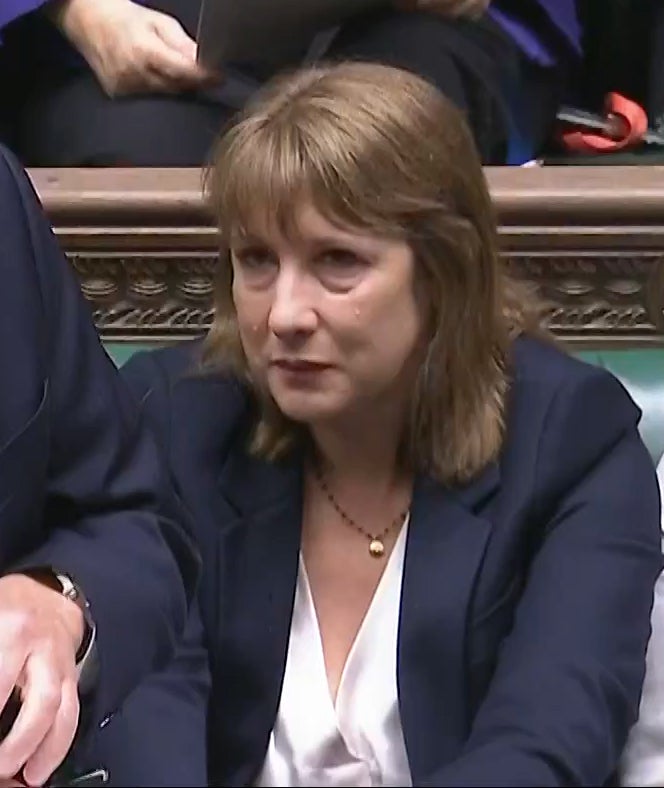Rachel Reeves has refused to rule out fresh tax rises after admitting the government’s U-turn on its flagship welfare reforms was “damaging”.
The government narrowly avoided a major Commons defeat on Tuesday in the wake of a backbench rebellion after it ditched plans to restrict eligibility for the personal independence payment (PIP), the main disability benefit.
But, aked about how the climbdown would affect the public finances, the chancellor warned there would be “costs to what happened”.
The original welfare proposals had been part of a package that ministers expected would save up to £5bn a year – with economists warning that tax rises are now likely to plug the gap left by the concessions to rebels. One, Ben Zaranko of the influential Institute for Fiscal Studies (IFS), even warned they tax rises as big as those in last October’s Budget could be on the way.
He said: “It’s not hard to imagine a world where they are of a ballpark similar scale to last autumn. If you have the perfect storm of economic forecasts being downgraded, additional spending commitments because these reforms haven’t got through parliament, and the world is in a gloomier place generally, you could comfortably be into double-figure billions even before you talk about any retail offers.
“A £20, £30, £40bn Budget is not what the government would want, but it’s not impossible by any means.” Meanwhile the chancellor to warned told the Cabinet on Tuesday that any “low-hanging fruit” tax rises are off the cards, and that plugging the gap would be a “big challenge”, The Times reported.
Ms Reeves said: “It’s been damaging. I’m not going to deny that, but I think where we are now, with a review led by [disability minister] Stephen Timms, who is obviously incredibly respected and has a huge amount of experience, that’s the route we’re taking now.”
Sir Keir Starmer has said the government is still committed to welfare reform, but ministers will now wait for the conclusions of the Timms review before implementing changes to PIP.
The fallout threatens to cause lasting damage to morale in Labour ranks, with some MPs calling for a reset in relations between the parliamentary party and the leadership before fractures widen.

The saga also sparked renewed calls among Labour MPs for a wealth tax to shore up the public finances. A series of backbenchers came out to publicly back a tax on wealth, with campaign group Patriotic Millionaires suggesting a 2 per cent levy on assets over £10m, saying it could raise billions.
But the prime minister’s Blairite director of policy delivery, Liz Lloyd, is said to have warned against the imposition of a wealth tax amid fears about the number of ultra-wealthy people leaving the UK. It is believed therefore that Sir Keir will block calls for a wealth tax.
Images of the chancellor crying in the Commons on Wednesday also spooked the financial markets and led to questions about her future, though a Treasury spokesperson said the tears were the result of a personal matter and Downing Street said she would remain in post.

In an interview with The Guardian, Ms Reeves said she had never considered resigning, adding: “I didn’t work that hard to then quit.”
She said she had gone to Prime Minister’s Questions because she “thought that was the right thing to do” but that “in retrospect, I probably wished I hadn’t gone in… [on] a tough day in the office”.
The Conservatives said Ms Reeves had broken a promise not to come back with fresh tax hikes this autumn.
Shadow chancellor Sir Mel Stride said: “Working families across the country are being punished by Keir Starmer’s inability to control his party and the chancellor’s total failure to get a grip of the public finances.”
The leadership rumours inside Labour that speak volumes about Starmer’s future
Which tax rises could Rachel Reeves introduce to pay for the £5bn welfare U-turn?
Starmer thanks NHS worker who looked after his brother
The 10 moments that defined Keir Starmer’s first year in office
A year of Keir: the first 365 days of Starmer in power
A year of Keir: It’s ended in tears, but he might be doing better than you think







